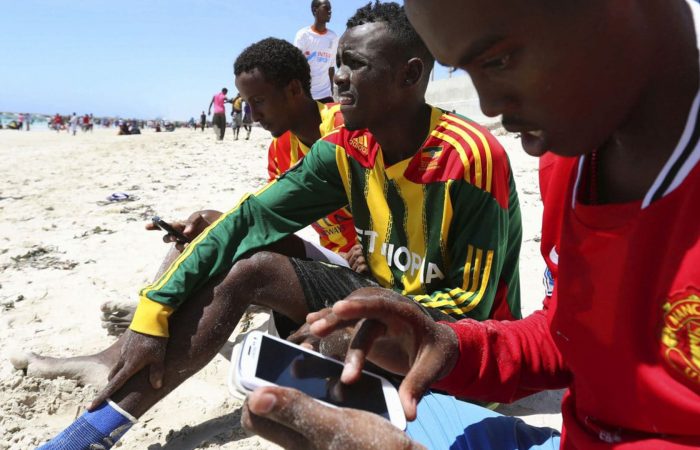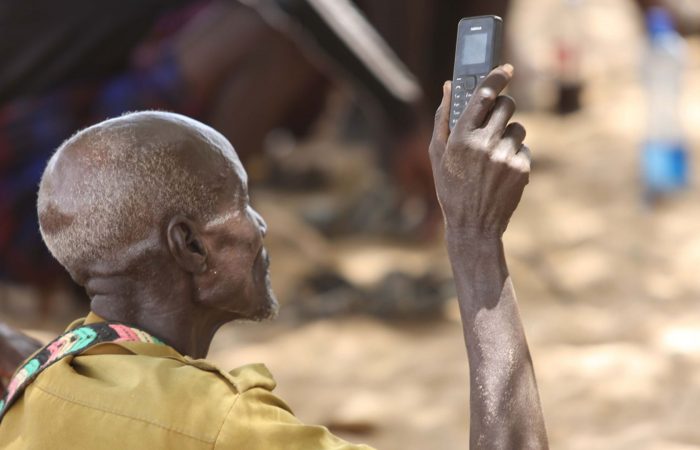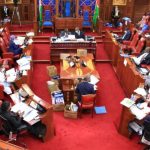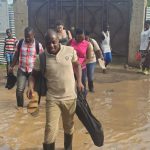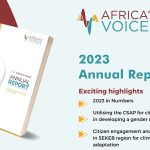The ICT4D Conference is one of the biggest annual events that brings together a motley crew of public, private, and civil society organisations to discuss all things related to technology in development.
Over four days of presentations, workshops and panels, hundreds of participants from the humanitarian and international development community mingle together to share ideas about how new digital technologies can be used to tackle some of the most difficult developmental challenges of today.
On any given day, you can find a researcher from Microsoft discussing how to better use machine learning in education, a NGO from Mongolia using SMS for weather alerts, or a business executive from Zambia giving a lively pitch about a new mobile app that gives farmers quicker access to agricultural market information.
Hundreds of business cards are exchanged; new connections are made and lively conversation carries on until late in the evening.
From Cambridge to Hyderbad
Africa’s Voices Foundation participated in this event for the second year running, to share ideas and explore innovative ideas. As a result, I took the long journey from Cambridge to Hyderabad, India, to share our ideas on what we believe are some of the most exciting developments in digital technology for development.
The theme for this year’s conference was “harnessing the power of data for the sustainable development goals.” The stated aim was to bring practitioners together to explore how data – and especially big data – can be used to catalyse progress toward reaching the Sustainable Development Goals (SDGs).

Working with low-resource languages
Our presentation was titled ‘Opportunities and challenges of working with low-resource languages’.” Given the theme of using data appropriately to accelerate the SGD goals, we wanted to share lessons learned in our efforts of trying to include people’s voices as a part of any data-driven initiative. The presentation briefly outlined our research methods and the bespoke tools we have created in order to “listen intelligently” to conversations in local languages across Africa.
We wanted to raise discussions on how a nuanced understanding of the every-day grittiness and richness of vernacular languages can help augment big data research – especially given how “shadowed” many such “low-resource” languages have historically been in data analysis.
I showcased some of the language resources Africa’s Voices has developed, for instance, for spoken Somali or Sheng (a slang version of Swahili spoken among the urban youth in Kenya). (You can read our slides HERE).
The current state of digital technology for development
As a Senior Researcher at Africa’s Voices with a background in both data science and digital anthropology, I find events such as the ICT4D Conference to be a curious mix of sharing ideas and knowledge, and opportunities for networking and fly-on-the-wall anthropological observations on the current state of digital technology for development. These are a few of my takeaways from the four busy days in Hyderabad.
1. The ICT4D sector is thriving. It is always astonishing to see how many people are working on how to use technology and data for purposes of humanitarian emergencies and development. So, for instance, on any given hour there could easily be tens of simultaneous presentations. This abundance can be occasionally overwhelming and hard to get a big picture on.
2. A lot of good research is being done. There is also a lot of good research being created and shared. During the four days of presentations, I had the pleasure of learning about the latest approaches (among many others) in new ways of researching hard-to-reach communities, such as:
- crowdsourced peer-to-peer research carried out by trained young girls using their mobiles phones;
- using remote sensors and state-of-the-art machine learning to research and improve agricultural yields;
- applying Google’s Earth Engine – together with Google’s cloud analytical tools – to provide a more granular understanding of satellite data in different parts of the world.

3. Quality research still matters. Considering all of this, I left Hyderabad remaining confident that Africa’s Voices is able to hold its own among the other innovations and solutions offered. At the ICT4D conference, I saw how the methods we have created to capture local and vernacular conversations still have a “wow” factor. Despite all the great work being done, there are few others who capture nuanced opinions and beliefs in everyday conversations – at least at the scale we can.
Despite all the hype, in a way big data still lags behind in including the less heard, and harder to reach voices; voices which, when listened to intelligently, can make a huge difference to the success of development projects.
As one participant told me following our talk: “Your presentation truly was an eye-opener on what is possible in the realm of computational linguistics for social good.”
The shadow of digital culture
In the end, it is during events like this where we get to both see the innovation of others but also the importance of what we do as a research organisation.
Elsewhere, I have called this approach researching the “shadow of digital culture”; that is, using best practices and approaches from social science and data science and applying them to where they matter most – on behalf of hard-to-reach populations, using the languages they feel most comfortable with, and delivering insights that are grounded in the richness of everyday experience.
